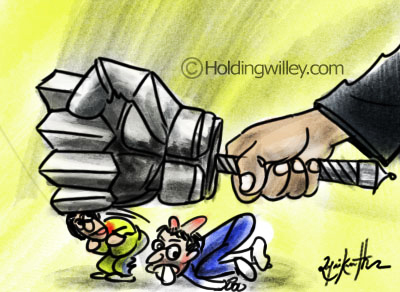 When our T20-loving children turn back the pages of history, Tuesday, July 14, 2015, will be remembered as a watershed moment in the annals of the Indian Premier League. Justice Lodha and his esteemed committee – on the directions of the Supreme Court – did what needed to be done.
When our T20-loving children turn back the pages of history, Tuesday, July 14, 2015, will be remembered as a watershed moment in the annals of the Indian Premier League. Justice Lodha and his esteemed committee – on the directions of the Supreme Court – did what needed to be done.
Here are the key pointers that emerged from their judgement:
a) Gurunath Meiyappan was involved in betting as a team official and his franchise has to bear the consequences of his actions;
b) Rajasthan Royals’ co-owner Raj Kundra was also involved in betting and his argument that he didn’t know that such betting activity was illegal in India doesn’t stand;
c) For their actions both have been banned for life from participating in any cricket related activities;
d) As a direct consequence, in keeping with IPL rules, both Chennai Super Kings and Rajasthan Royals have been suspended from the tournament for two seasons.
“
The news is both joyous and sad. Joyous, because justice has finally been meted out, as it was proved by investigation that Meiyappan and Kundra were both involved in betting while acting as team representatives. Sad, because this drama has been dragged on far too long, showcasing to the watching world that Indian cricket was unable to deal with itself when faced with personal greed. The BCCI should have been the ones to take this action. Only they did not.
”
And there is a pertinent reason for this. Until recently, the BCCI was presided over by N Srinivasan, who also owns India Cements Ltd., the former owner of the Chennai Super Kings franchise. A board official owning an IPL team and governing the general direction of the tournament as well as that of Indian cricket – how is this not a conflict of interests? Ever since the man rose to power, this question has been asked time and again, then again, and again, only to be met with muted responses every time.
It took the Supreme Court to take cognizance of the issue and rule that there is a definitive conflict here for Srinivasan, barring him from seeking re-election to the post of the BCCI. However, he isn’t the only one to blame. The entire BCCI hierarchy is at fault here, because they allowed one man’s greed to become so big, yet no action was taken by any committee, none whatsoever in the interests of the sport in general.
As such, every official who held term during the last two to three years – in particular under Srinivasan’s term as board president – needs to be hauled up for their role in this affair. Indeed, the second part of Justice Lodha’s investigation will deal with this scenario and more skeletons are expected to fall out of the closet.
Meanwhile, this judgement, in a way, charts the road ahead for the IPL. On a technicality, it can be ascertained that the players and teams as such haven’t been impacted directly. As long as the two franchises aren’t involved, the two teams can still participate in the IPL, by change of ownership or under BCCI management. In both cases, they will retain the same players.
There is a case for not selling off the franchises though. Never mind their illegal activities: India Cements and Jaipur IPL have put in a lot of time and money in this venture, too much for it to go waste. And the bottom-line is that they have not been terminated, only given a suspension of two years. So, while they serve out their suspension, their players can return to the auction pool with the BCCI looking for two new franchises to retain an eight-team tournament. With the next IPL season another eight months away, there is plenty of time to achieve this.
It also sits well with their long-term plans. In 2018, the IPL broadcast rights are up for grabs once again. If two new franchises are brought in for 2016 and 2017, with Chennai and Rajasthan returning afterwards, it will eventually lead to a ten-team league, something the BCCI has aspired to since day one. Then, by chance or design, a lot of IPL’s problems have been given a time-bound solution. Only proper willpower on the BCCI’s part is needed.
As such then, the original point shouldn’t be lost here. This judgement paves the way for cleansing the IPL once and for all, setting the groundwork for a clean T20 league going ahead. IPL’s brand image has taken a massive hit, yes, but if the end-outcome is a tournament that is clean beyond doubt, the broadcasters and sponsors will be happy. The framework for the ACSU (Anti-Corruption and Security Unit) – both ICC and BCCI – is already present, and with both franchises punished under IPL’s existing laws means that both players and officials ought to be wary of such activities in the future. It will lay greater onus on the franchises’ team management henceforth.
Everyone will be held accountable with a set precedent. The board, the franchises, the team management and the players; and that can only be a good thing.